Roger Scruton
In Memoriam, 1944-2020
Sir Roger Scruton was a Senior Fellow of the Ethics and Public Policy Center and a philosopher, writer, and public commentator widely known for his work on aesthetics and culture and for his defense of conservative political philosophy.
Sir Roger Scruton was a Senior Fellow of the Ethics and Public Policy Center and a philosopher, writer, and public commentator widely known for his work on aesthetics and culture and for his defense of conservative political philosophy.
Mr. Scruton was the author of more than forty books, ranging in subject matter from academic works on aesthetics, art, and music to popular accounts of conservatism, utopianism, and political philosophy to personal reflections on drinking wine and hunting.
A prolific essayist, Mr. Scruton regularly wrote columns and essays for such publications as The New Statesman, The American Spectator, The New Criterion, and The New Atlantis, where he was a contributing editor. He was also the editor of The Salisbury Review from its founding in 1982 until 2001.
In addition to his nonfiction, he wrote two novels and several short stories, and has composed two operas (The Minister and Violet).
Mr. Scruton taught philosophy and aesthetics at Princeton, Oxford, the University of St. Andrews, Boston University, and Birkbeck College. He was also a visiting fellow at the American Enterprise Institute and a research fellow at the Institute for the Psychological Sciences. In 2011, Mr. Scruton delivered the Stanton Lectures at the Divinity School at the University of Cambridge. In 2010, he delivered the Gifford Lectures at St. Andrews. In 2009, he wrote and narrated an acclaimed hour-long BBC documentary, Why Beauty Matters.
Mr. Scruton was a fellow of the Royal Society of Literature (since 2003) and a fellow of the British Academy (since 2008). In 1998, he was awarded the Medal of Merit of the Czech Republic, one of that nation’s highest state honors, in recognition for his role in the “underground university” he had helped establish in Czechoslovakia in the last decade of communism. He received his B.A., M.A., and Ph.D. in philosophy from the University of Cambridge.
A Year in Which Much Was Lost – but More Gained
Roger Scruton

During this year much was taken from Sir Roger Scruton — his reputation, his standing as a public intellectual, his position in the Conservative movement, his peace of mind, his health. But much more was given back.
Articles
Spectator (UK) / December 18, 2019
Now in Britain, as Then in Czechoslovakia, the True Intellectual Is a Dissident
Roger Scruton
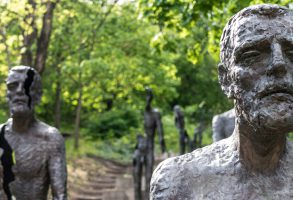
The witch-hunting hysteria of Communist Prague has returned with a vengeance, not in Eastern Europe but in Britain, where open inquiry and the presumption of innocence have been, until this moment, the foundation of moral order and the guarantee of civil peace.
Articles
The Daily Mail (UK) / June 30, 2019
Should I Forgive the Journalist Who Got Me Fired?
Roger Scruton
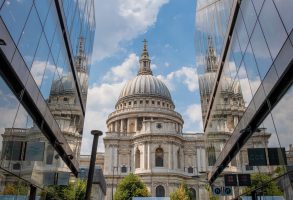
The former head of Britain’s Building Better, Building Beautiful Commission says he feels gratitude, not resentment, over his ouster as chairman.
Articles
The Spectator (UK) / April 17, 2019
Here’s What I Want from Modern Architecture
Roger Scruton

Architects need to stop aiming for the ‘iconic’ and focus on everyday beauty.
Articles
Spectator (UK) / February 21, 2019
The Fury of the Modernists
Roger Scruton

From its beginnings in the Bauhaus, architectural modernism has been less an aesthetic experiment than a moral crusade.
Articles
The American Conservative / December 13, 2018
You Can Hate Me as Much as You Like – It’s Not a Crime
Roger Scruton

If there is hatred in our society, it does not come from ordinary prejudices, such as those that lead rival groups of citizens to treat each other with suspicion; it stems from those who do not see prejudice for what it is, the natural response to difference, and the desire to live in a comfort zone of one’s own.
Articles
Spectator (UK) / November 28, 2018
The Beauty of Belonging
Roger Scruton

Everyday aesthetic judgment is profoundly rooted in the sense of community, and also forms a part of the collective effort whereby communities are brought into being and maintained in equilibrium.
Articles
Plough Quarterly - Autumn 2018 issue / October 11, 2018
The Pompidou Centre, Paris’s Great Blemish
Roger Scruton
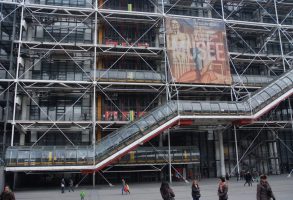
From no angle does the ostentatious Pompidou Centre fit in with its surroundings, nor did it occur to its architects that it should.
Articles
Spectator (UK) / September 20, 2018
The Threat of ‘Genius’ to Truly Successful Architecture
Roger Scruton
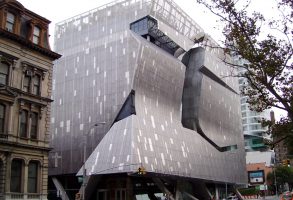
The pursuit of genius in architecture is what has most contributed to the unstitching of our urban fabric, giving us those buildings in outlandish shapes and unsightly materials that take a chunk of the city and make it into somewhere else.
Articles
The American Conservative / September 7, 2018
Interview: Sir Roger Scruton on What It Means to Be a Conservative
Roger Scruton

Sir Roger Scruton talks to National Review about his latest book and the meaning of conservatism.
Articles
National Review Online / July 29, 2018
What Trump Doesn’t Get About Conservatism
Roger Scruton
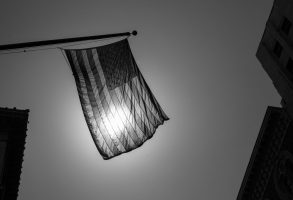
Perhaps the principal reason for doubting Mr. Trump’s conservative credentials is that being a creation of social media, he has lost the sense that there is a civilization out there that stands above his deals and his tweets in a posture of disinterested judgment.
Articles
The New York Times / July 4, 2018
Kant vs. Cant: How Liberals Lost Their Way
Roger Scruton

We belong together, liberalism tells us, because we ourselves create the law that governs us, with the aim of freeing and protecting us all. But today’s liberals identify with oppositional causes, even if — especially if — it is our tradition of liberal government that is the target.
Articles
Spectator (UK) / June 14, 2018